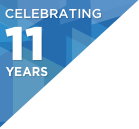Conference: Nov 5-7, 2018
Workshops: Nov 8–9, 2018
Presentation: Scaling Slack
Share this on:
Abstract
Slack is a communication and collaboration platform for teams. Our millions of users spend 10+ hrs connected to the service on a typical working day. They expect reliability, low latency, and extraordinarily rich client experiences across a wide variety of devices and network conditions. In the talk, we'll examine the limitations that Slack's backend ran into and how we overcame them to scale from supporting small teams to serving gigantic organizations of hundreds and thousands of users. We'll hear stories about the edge cache service, real-time messaging system and how they evolved for major product efforts including Grid and Shared Channels.
Interview
I work on the edge cache tier for Slack. The focus is to make the service more performant with our growing user base and more resilient to failures. The other important aspect is to support new product efforts at Slack. And we are always product first.
Developers are generally interested in how other systems work. I’ll give a high level introduction on how Slack works, and then focus on our two-year journey of how Slack scaled. There were mistakes made and lessons learned. Other companies with similar rapid growth may learn a thing or two from our experience.
Our ability to scale a service excites me day-to-day. As such, I think the problems that we deal with are highly relevant to architects, system engineers, full-stack engineers and site reliability engineers.
Building Slack is not as easy as it may appear to be. Users expect low latency, high performance and extremely rich user experience. Slack contains a large, rapidly changing dataset. Individual components of the data (users, channels, files, etc) reference each other. Those changes need to be consistent across all clients. With the rapid growth of our user base and request volume, we have to, at times, make fundamental changes in our architecture to accommodate the growth in addition to the incremental steps.
Similar Talks




.
Tracks
-
Architectures You've Always Wondered About
Architectural practices from the world's most well-known properties, featuring startups, massive scale, evolving architectures, and software tools used by nearly all of us.
-
Going Serverless
Learn about the state of Serverless & how to successfully leverage it! Lessons learned in the track hit on security, scalability, IoT, and offer warnings to watch out for.
-
Microservices: Patterns and Practices
Stories of success and failure building modern Microservices, including event sourcing, reactive, decomposition, & more.
-
DevOps: You Build It, You Run It
Pushing DevOps beyond adoption into cultural change. Hear about designing resilience, managing alerting, CI/CD lessons, & security. Features lessons from open source, Linkedin, Netflix, Financial Times, & more.
-
The Art of Chaos Engineering
Failure is going to happen - Are you ready? Chaos engineering is an emerging discipline - What is the state of the art?
-
The Whole Engineer
Success as an engineer is more than writing code. Hear inward looking thoughts on inclusion, attitude, leadership, remote working, and not becoming the brilliant jerk.
-
Evolving Java
Java continues to evolve & change. Track covers Spring 5, async, Kotlin, serverless, the 6-month cadence plans, & AI/ML use cases.
-
Security: Attacking and Defending
Offense and defensive security evolution that application developers should know about including SGX Enclaves, effects of AI, software exploitation techniques, & crowd defense
-
The Practice & Frontiers of AI
Learn about machine learning in practice and on the horizon. Learn about ML at Quora, Uber's Michelangelo, ML workflow with Netflix Meson and topics on Bots, Conversational interfaces, automation, and deployment practices in the space.
-
21st Century Languages
Compile to Native, Microservices, Machine learning... tailor-made languages solving modern challenges, featuring use cases around Go, Rust, C#, and Elm.
-
Modern CS in the Real World
Applied trends in Computer Science that are likely to affect Software Engineers today. Topics include category theory, crypto, CRDT's, logic-based automated reasoning, and more.
-
Stream Processing In The Modern Age
Compelling applications of stream processing using Flink, Beam, Spark, Strymon & recent advances in the field, including Custom Windowing, Stateful Streaming, SQL over Streams.
-
Performance Mythbusting
Real world, applied performance proofs across stacks. Hear performance consideratiosn for .NET, Python, & Java. Learn performance use cases with OpenJ9, Instagram, and Netflix.
-
Tools and Culture: What's Beyond a Stack of Containers?
Containers are not just a techology. It's a platform. Push your knowledge.
-
Web as Platform
All things Browser, from JavaScript Frameworks for animation and AR / VR to Web Assembly and from protocol work to open standards evolution.
-
Beyond Being an Individual Contributor
Beyond being an individual contributor. Building and Evolving managers and tech leadership.
-
Building Great Engineering Cultures
Why engineering culture matters. Track features org scaling, memes as a culture tool, Ally skills, and panels on diversity / inclusion.
-
Hardware Frontiers: Changes Affecting Software Developers Today
Topics around: Quantum computing, NVM, SMR, GPU, custom hardware, self-driving cars, and mobile hardware.









